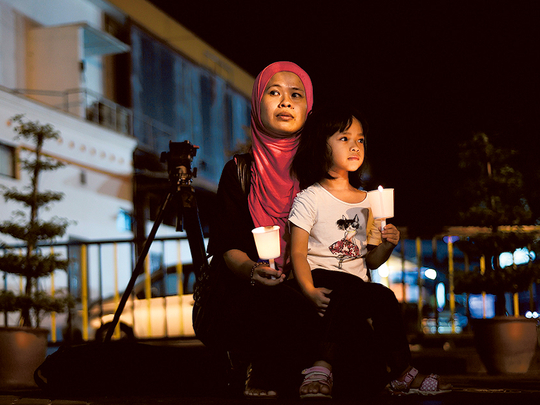
Dubai: Mary John, Clinical Psychologist at the Dubai Community Health Centre feels for the next of kin of the MH370 victims, the bereavement process will be lifelong.
“Usually for any sort of grief, be it death or separation, the actual grieving begins only after closure, when one has seen the body, gone through the rituals involved with burial. Only then prayers for the departed soul are actually made. Until one sees a body or knows for sure a person will not come back, there is always hope.”
John feels now that the Malaysian government has called off the search the relatives will typically go through several stages of grieving. “At first they were coping with complete denial. No one wanted to believe their loved one had perished in the tragedy and they clung to every bit of news. Now with the search being called off, there will be a grudging acceptance of death and this will be followed by anger and guilt. The anger against the government for not having done enough, anger also directed towards the ‘missing’ person for not being there and lastly, a mixture of guilt and anger directed at one’s own self for not being there for the loved one.”
Usually people who are in the protective mode like parents and husbands or elder siblings usually feel that they can take care of someone under their protection. In this case there will be a nagging feeling in the hearts and minds of relatives that had I been there, I would have done something to protect and preserve life. “This kind of feeling will be heightened in case of surviving spouses who had earlier planned to be on the flight, but did not go for some reason and parents of children who were on board the flight. They will never be able to forgive themselves for not being there.”
John feels coming to terms or drawing the curtains on their grief might never happen at all. “Survivors who do not get closure of death, like seeing a body, never come to terms with it. They will grieve lifelong. There will be no acceptance as they will always have this nagging ache in their hearts. With time the pain might dull, but it will always be there, as losing someone to a tragedy like this is quite different from a loved one dying of a sudden cardiac arrest or even after a prolonged illness. This kind of ‘death’ keeps the person permanently in a state of hope and denial.”
There are ways that survivors can works towards coming to terms with the loss, says John providing some definite tips.
1. It is not easy to accept but it is possible to live with a lot of positive memories of the person you lost. Think of all the happy moments and the legacy he or she has left behind
2. Try and start something like a fund or trust in memoriam of the person in service of something that was dear to him or her.
3. If you are a theist and believe in God, being spiritual can help you rationalise that this was God’s will and he knows best.
4. Try to gradually accept the fact that the person is not with you and will perhaps never be and you do not know where he might be.











